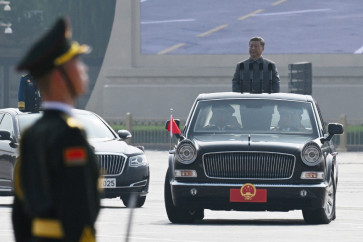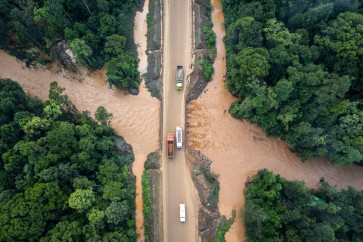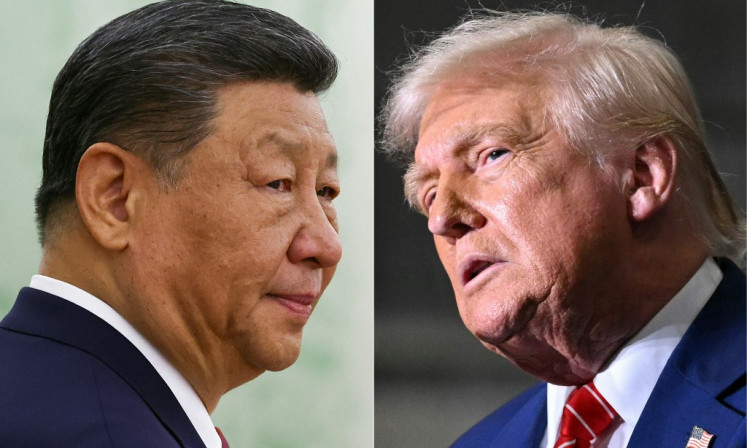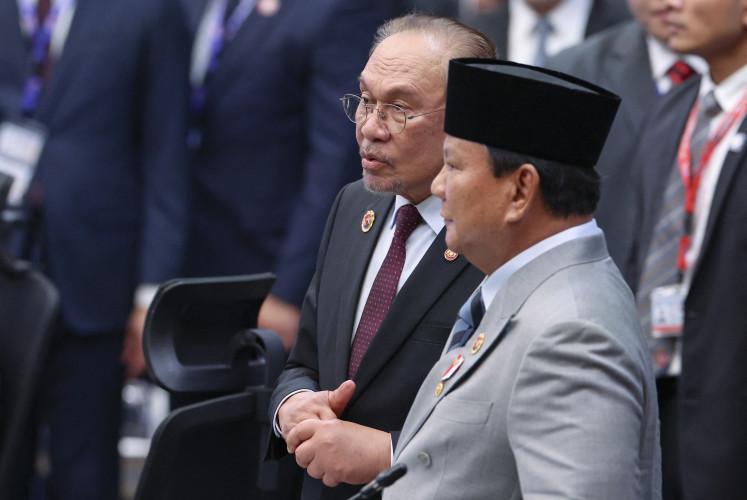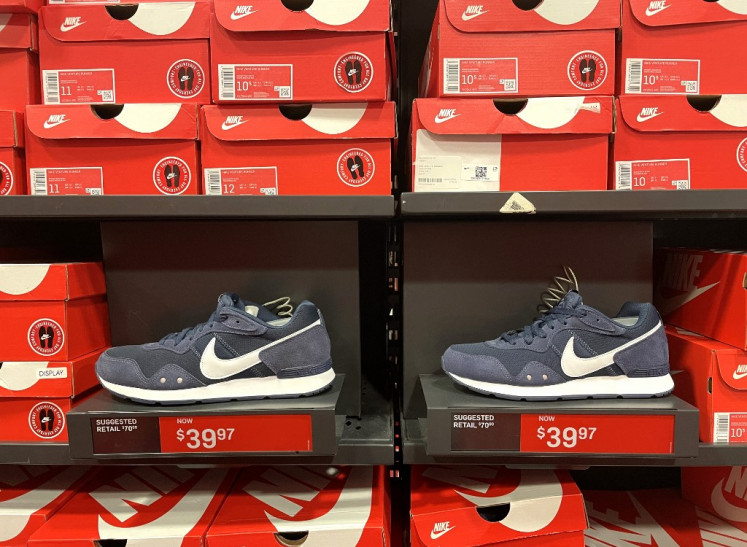Popular Reads
Top Results
Can't find what you're looking for?
View all search resultsPopular Reads
Top Results
Can't find what you're looking for?
View all search resultsStudy claims US is Indonesia's largest foreign investor
A recent study commissioned by AmCham Indonesia, the US Chamber of Commerce and USAID Indonesia suggests that existing official data may underestimate the scale of US investment in Indonesia
Change text size
Gift Premium Articles
to Anyone
A recent study commissioned by AmCham Indonesia, the US Chamber of Commerce and USAID Indonesia suggests that existing official data may underestimate the scale of US investment in Indonesia.
The study ' conducted by Ernst & Young Indonesia, Paramadina Public Policy Institute and Gadjah Mada University ' shows that the US had invested a total of US$65 billion between 2004 and 2012, potentially making the superpower Indonesia's biggest investor during the period, Thomas J. Donohue, president and CEO of the US Chamber of Commerce, said in his remarks on Thursday at a release event.
The results contrast sharply with most published data, including that from Bank Indonesia (BI), which shows that US foreign direct investment (FDI) stood at only $7 billion during the eight-year period, placing the country as the fourth biggest investor in Indonesia.
The study, however, doesn't say whether official state FDI figures are incongruous with those published by the respective foreign countries.
According to the study, US companies plan to invest $61 billion in Indonesia over the next three to five years.
The study finds that in 2012, US investment in Indonesia was mostly concentrated in mining, oil and gas and manufacturing, with 52.2 percent of total FDI in extractive industries and 46.1 percent in the manufacturing sector. While US FDI in mining, oil and gas increased by 11 percent from 2004 to 2012, investment in the manufacturing sector grew faster at 21 percent.
According to Andrew White, managing director of AmCham Indonesia, the study involved 35 major US companies in Indonesia, representing approximately 10 percent of AmCham Indonesia members.
Those 35 companies paid a total of $2.6 billion in corporate income tax last year, while all extractive industry players contributed $17 billion to non-tax state revenue, or 47 percent of total non-tax state revenue for the year, according to the study.
'Both the amount and the impact of American investment in Indonesia have in the past been greatly underestimated. This study clearly demonstrates that American investment in Indonesia is, and will continue to be, a critical driver of the economy,' White said.
The study also addresses major issues that companies consider as common barriers to investing in Indonesia, such as legal and regulatory uncertainty, insufficient infrastructure and a shortage of skilled and educated workers.
Indonesian Ambassador to the US Dino Patti Djalal said, 'It is very important for us to keep foreign investors, including American investors, happy. We have to understand what the investors want from Indonesia.'
The Investment Coordinating Board's (BKPM) 2012 data shows that Singapore was Indonesia's biggest investor in 2012 with $4.9 billion, or 19.8 percent of $24.6 billion in total FDI, followed by Japan (10 percent), South Korea (7.9 percent) and the US (5.1 percent).


